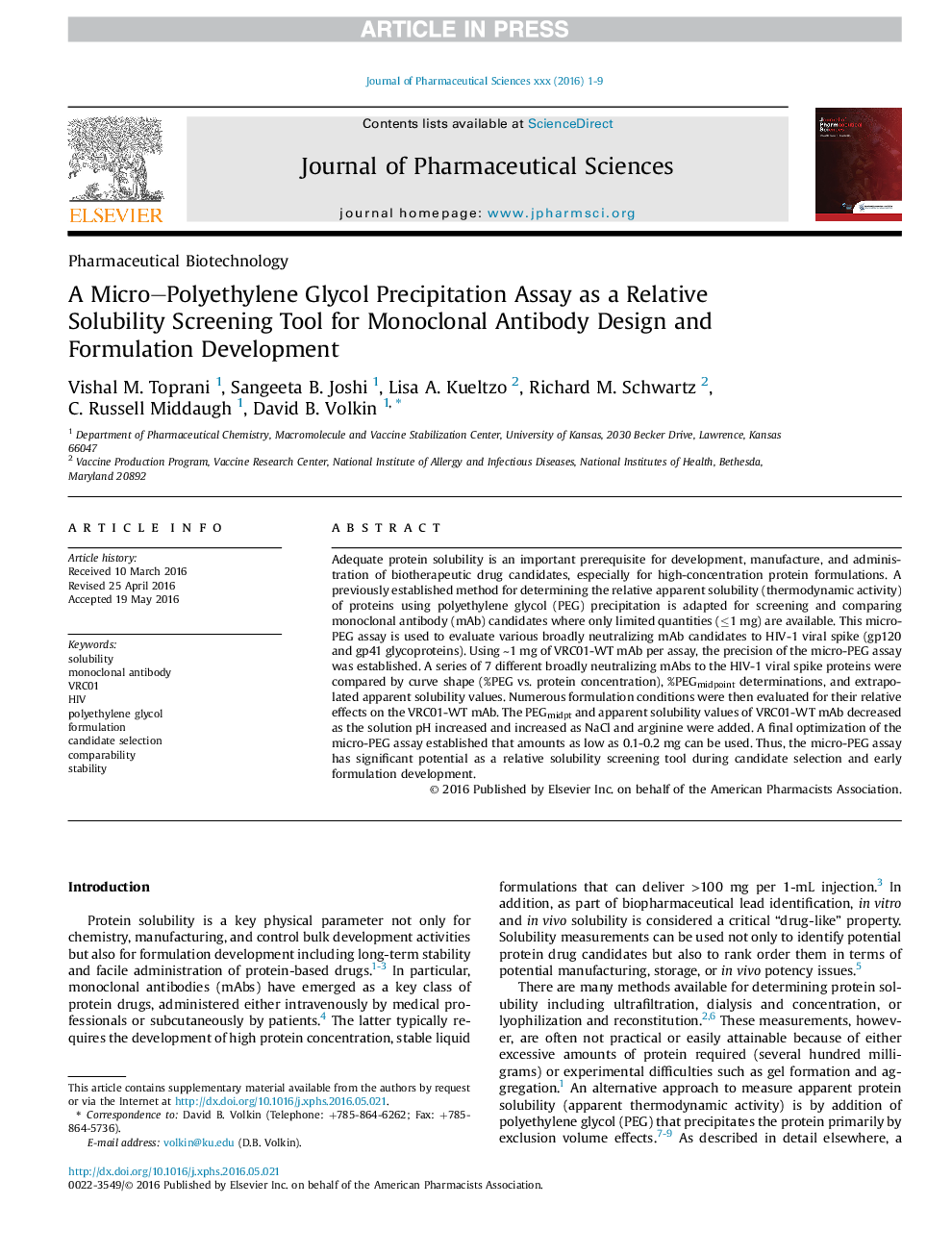| Article ID | Journal | Published Year | Pages | File Type |
|---|---|---|---|---|
| 2484322 | Journal of Pharmaceutical Sciences | 2016 | 9 Pages |
Abstract
Adequate protein solubility is an important prerequisite for development, manufacture, and administration of biotherapeutic drug candidates, especially for high-concentration protein formulations. A previously established method for determining the relative apparent solubility (thermodynamic activity) of proteins using polyethylene glycol (PEG) precipitation is adapted for screening and comparing monoclonal antibody (mAb) candidates where only limited quantities (â¤1 mg) are available. This micro-PEG assay is used to evaluate various broadly neutralizing mAb candidates to HIV-1 viral spike (gp120 and gp41 glycoproteins). Using â¼1 mg of VRC01-WT mAb per assay, the precision of the micro-PEG assay was established. A series of 7 different broadly neutralizing mAbs to the HIV-1 viral spike proteins were compared by curve shape (%PEG vs. protein concentration), %PEGmidpoint determinations, and extrapolated apparent solubility values. Numerous formulation conditions were then evaluated for their relative effects on the VRC01-WT mAb. The PEGmidpt and apparent solubility values of VRC01-WT mAb decreased as the solution pH increased and increased as NaCl and arginine were added. A final optimization of the micro-PEG assay established that amounts as low as 0.1-0.2 mg can be used. Thus, the micro-PEG assay has significant potential as a relative solubility screening tool during candidate selection and early formulation development.
Keywords
Related Topics
Health Sciences
Pharmacology, Toxicology and Pharmaceutical Science
Drug Discovery
Authors
Vishal M. Toprani, Sangeeta B. Joshi, Lisa A. Kueltzo, Richard M. Schwartz, C. Russell Middaugh, David B. Volkin,
